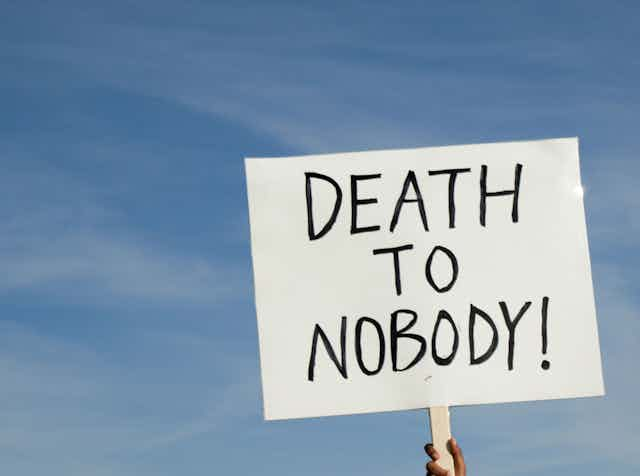Identity has been one of the most decisive and divisive political phenomena of the past 12 months. A particular understanding of national identity provided a focus for discontent with the EU ahead of the UK’s Brexit referendum, while Donald Trump built a presidential campaign which challenged US voters to define themselves by opposition to others under a banner reading: “Make America Great Again”.
Civil wars have been fuelled by differing ideas. About what it is to be Syrian, say, or a true Muslim. And differing racial identities have fuelled something close to civil war in parts of the US, not least in the sometimes violent protests following the 2014 decision not prosecute police officer Darren Wilson for shooting Michael Brown in Ferguson, Missouri.
No surprise then that the 2017 World Economic Forum meeting in Davos has adopted the idea of building positive identities as one of its key themes. But building an identity is problematic. Frequently, it is unclear what constitutes an “identity”. Similarly, it is not clear which parts of an identity should be built or protected.

Stamp of authority
For some individuals, their stamp collecting interests stand at the heart of their identity, but does that mean governments or businesses should have a legal obligation to accommodate the philatelists’ interests just as they should have a legal obligation to allow people to practice their religion, say? Most people would think not.
One obvious difference between stamp collecting and religious faith is that it is widely believed that faith is the central part of who some people are, unlike philately. Challenge faith and you challenge that person’s core identity.

Which beliefs and commitments form a core part of a person’s identity is a matter of dispute. Hence, some people regard homosexual orientation as a life-style choice while others see it as one of the most natural facets of millions of people’s being. The positions that states might adopt in relation to the value and practical benefits of religious belief, sexual orientation – and even stamp collecting – make crucial assumptions about such issues, even if that fact is not recognised by the politicians and the people who keep them in power.
Opposition forces
Despite these ambiguities, a person’s identification with a particular nation continues to be one of the most powerful motivators in the world. As we have seen, it can have a dramatic influence during referendums and elections. Its positive influence makes people willing to bear the many burdens of living together, not least by paying taxes for causes that do not benefit themselves directly – such as when the childless pay for the education of other people children.
Identity is a paradox then – a motivating force, yet often profoundly ill-defined and shifting. Conservatives have often seemed more comfortable than others with this paradox. Hence, the German conservative Carl Schmitt (1888-1985) argued that what mattered most in any sort of identity is who you view as your enemy. For Schmitt, a sense of identity, whether personal or collective, is founded on conflict and exclusion rather than allegiances to definite positive values.

Certainly, the right has spent much of the past 12 months building and bolstering identities on this Schmittian basis. Leavers in the UK portrayed the enemy as the EU (although not necessarily European states as such). Similarly, Trump demonised Mexico, Mexicans and others. That tactic did much to galvanise support for their respective causes because it built for voters a collective identity.
Yet, many people are uneasy with the Schmittian claim that you should (can only?) build strong identities through processes of exclusion. The tactic has a dangerous air that is reinforced by Schmitt’s own close ties to the Nazis.
Common ground
Contemporary defenders of cultural pluralism and internationalism have seen several ways in which inclusive identities can be built. Rejecting Schmitt, for example, Labour peer, Lord Bhikhu Parekh, an emeritus professor at Hull University, looks to the continuing processes of respectful but honest dialogue between initially divergent groups. His hope is that such dialogue will help to construct an inclusive sense of the common good.

Dialogue alone, however, might simply bring a clearer understanding of the profound differences between the groups. To actually bridge these differences all parties must be willing to tolerate some things they dislike about others and to alter their own positions in order to build new common ground on which to live together.
They must also be willing to acknowledge the positive efforts made by the groups with which they are attempting to reach a new shared identity. The process of accommodation will require positive actions, as when the Ahmadiyya Muslim Youth Association and others helped the non-Muslim victims of the 2015 Cumbrian and Yorkshire floods in the UK.
At heart it is a straightforward idea that was lost in the political drama of 2016. The solution, however, is not straightforward. The best way to address the resurgence in identity politics is to recognise that practical action is possible only where shared identities have been emphasised or built. Only with shared identities will citizens willingly share the burdens of living together.
Just as crucially, one must appreciate that, to be a positive force, identity politics requires the kind of leadership that can nurture those positive common allegiances to create narratives of common citizenship and the common good. After a year when politicians often took the simpler route to electoral success, it will take political vision, courage and persistence to pull it off.
This piece has been published in cooperation with the World Economic Forum to coincide with its annual meeting in Davos, Switzerland. You can read more here.

